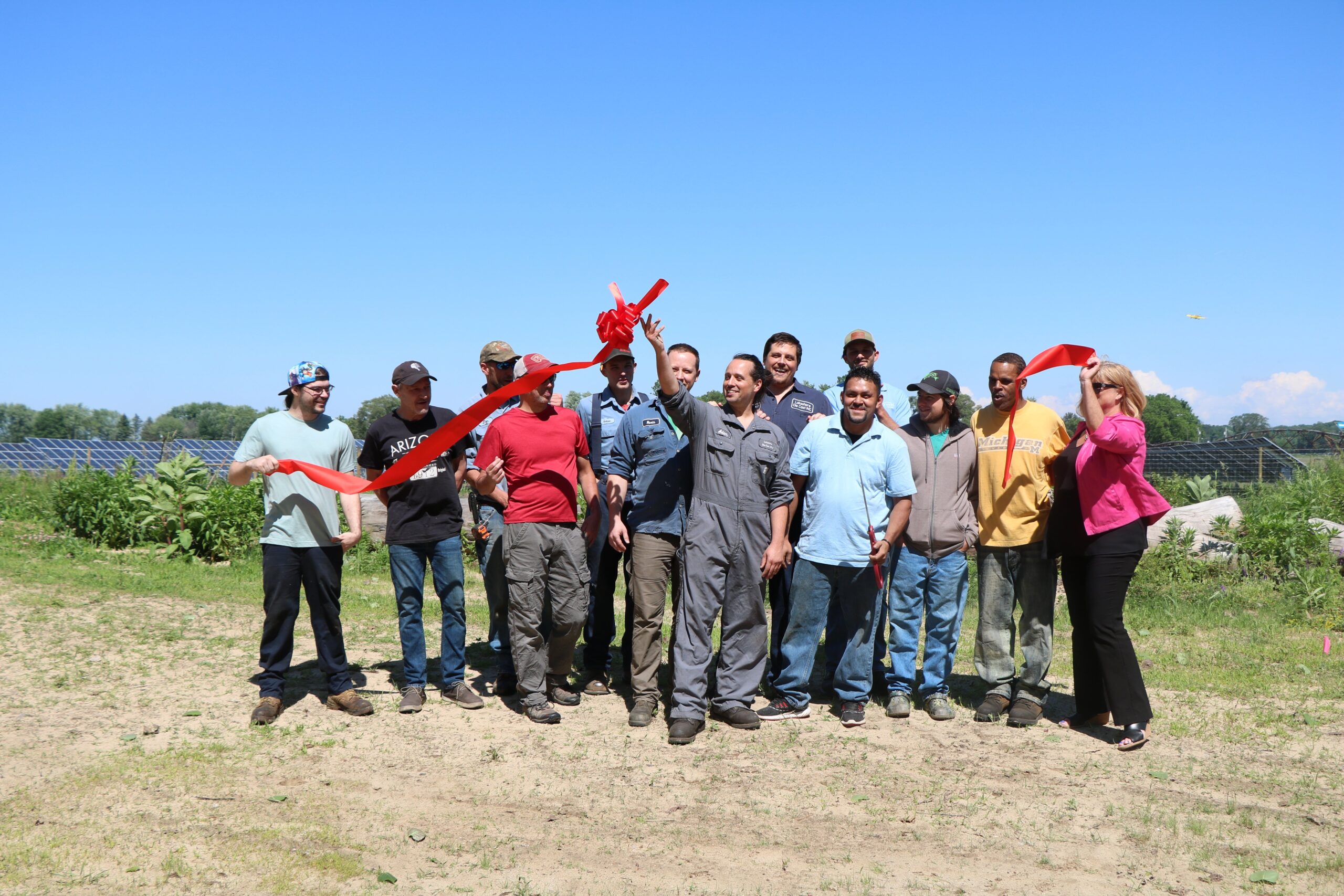Rural Manufacturer Expands Competitive Capacity with Renewable Energy Grant
- Rural Energy for America Program

It is not a stretch to say that Adam Schaller, a hardworking business owner who operates Lakeshore Die Cast with his dad, is somewhat of a trendsetter in southwest Michigan’s quaint Village of Baroda. What began for Schaller a few years ago with a desire to mitigate a tax burden and reduce fixed costs has evolved into a solar-powered domino effect across the town of fewer than 1,000 residents.
After Schaller installed the first of two solar arrays at Lakeshore Die Cast, which manufactures zinc and aluminum die castings, a funeral home in nearby Bridgman and a nearby pet boarding facility known as Paws N Claws installed their own arrays, while Vail Rubber in nearby St. Joseph is in the process of installing one and Bridgeville Plastic is preparing to. All of that solar power that is being harnessed positively impacts the town’s collective bottom line in a state that isn’t exactly famous for its sunshine.
In fact, there are entire months where parts of the state won’t experience a single sunny day. Even still, Schaller said his two solar installations, one of which was partially funded by a USDA Rural Energy for America Program (REAP) grant, have paid off.
“I [offset] 100 percent of my costs,” he said. “I sell more power than I buy. So, I make money selling power in addition to displacing my costs.”

Panels Offer More Than Electrical Output
In addition to the 500-panel array, Schaller later installed a second set that was eight times the size. He estimates that the first project alone, funded by the REAP grant, saves the company about $50,000 a year. In addition, the Renewable Energy Investment Tax Credit saves another $20,000 annually, he said.
And while that cost savings positively impacts the company’s bottom line, it also impacts the Village of Baroda.
“It drives job creation here,” Schaller said, noting that the savings realized by the first array of panels allowed the company to add at least three employees.
By finding creative ways to reduce costs, Schaller said he has improved Lakeshore Die Cast’s capacity to compete on a global scale, making it not only less costly to complete projects but easier to land projects in the first place — which contributes to a more stable employment environment in the community of Baroda.

In Search of Energy Solutions
The Schaller family has called southwest Michigan home for three generations, creating jobs and building a local industry through die casting since the early 80s. Die casting involves the manufacturing of molded metal parts that are used in a variety of industries, from automotive to interior fixtures and beyond.
While the operation had been gradually expanding over time, its volume of work nearly quadrupled since the Great Recession, impacting electricity usage as well as the company’s tax burden. It inspired Schaller to consider his options, knowing that electricity usage wasn’t really negotiable.
“Watching electricity costs continue to go up, I couldn’t do anything about it for a long time. I started thinking about ways to reduce it,” Schaller said, noting that even Michigan’s electrical choice option allowing consumers to choose providers didn’t help reduce costs much. “As a solution, to lower our tax burden and lower our utility costs over time, that’s what drove me to learn about solar and onsite generation.”
An engineer at heart, Schaller dove into the data and found that a combination of solar-related federal grants and tax incentives could offer a gateway to savings for Lakeshore Die Cast — even here in Michigan.
“That tax incentive drove part of the reason why I went after the project,” he said. “I wanted to reduce electricity costs but I wanted to reduce tax burden and there aren’t very many things that are a flat tax credit for your business that are like the section 48 tax credit with solar installation.”
He asked around and found Harvest Solar, a company that had previously installed an array at Traverse City winery. They told him about USDA’s Rural Energy for America Program (REAP) grant opportunity, helped him write it, and then installed the 500-panel array once it was approved, allowing Schaller to demonstrate to his fellow business owners in the process that opportunities were accessible at the local level.
Now, he’s hoping to spread the word about the availability of grants and the value that comes with solar energy, even in Michigan.
“I’d do it again,” he said. “Once one person figures out how it can be useful, it’s about helping others do it, too.”

Solar United Neighbors (SUN)’s Ready, Set, Solar! REAP! is a 10-week program that helps walk farmers and rural small business owners through the REAP application process. SUN is dedicated to helping anyone who’s overwhelmed by the prospect of going solar with real life examples, credible information, and personalized experience.
Farmers and rural small businesses can learn more and apply for REAP through their state Rural Development office.
Get the latest on solar straight to your inbox.
Fight for your solar rights.
Everyone has the right to go solar. Spread the sunshine nationwide and in your local community by taking action, joining events, and more.